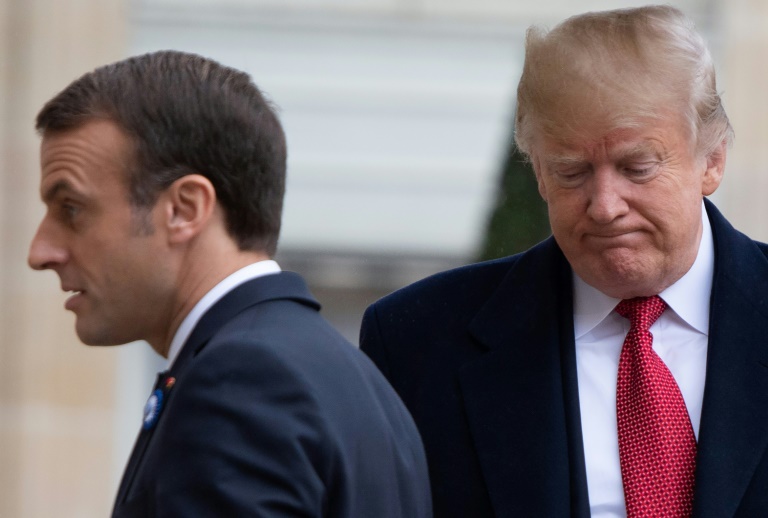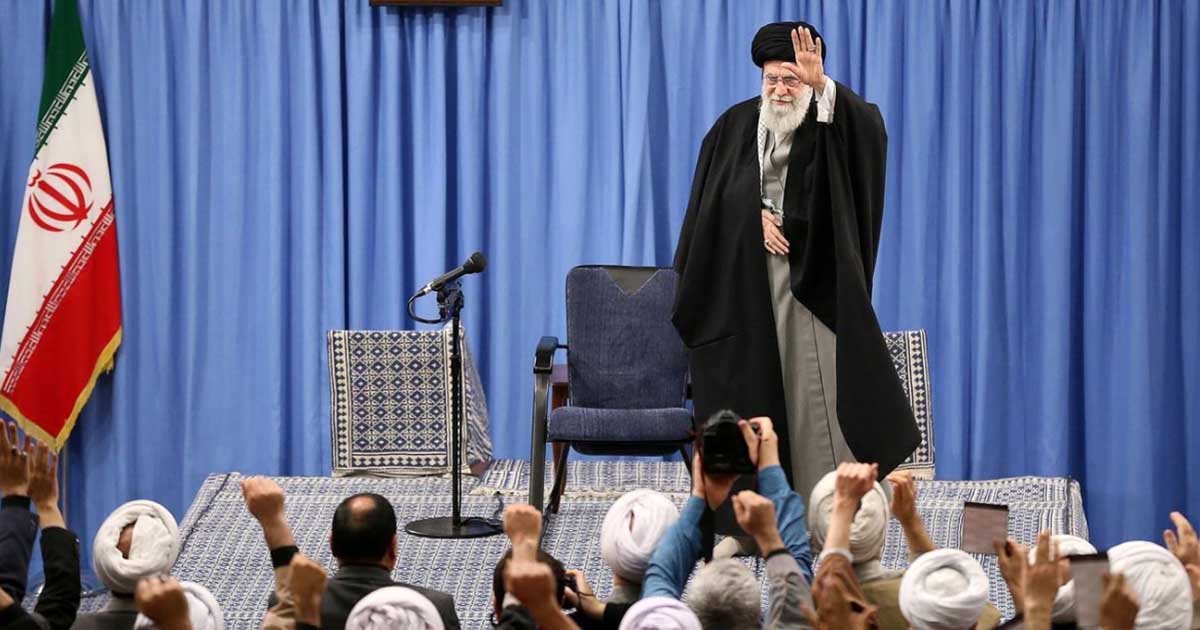Last year, the 75th anniversary of the US atomic attacks received sparse Western media coverage. With the bombing of Hiroshima on 6 August 1945, mankind entered the defining period of its brief existence on earth: the nuclear age.
The United States detonated two nuclear weapons over the Japanese cities of Hiroshima and Nagasaki on 6 and 9 August 1945, respectively. The two bombings killed between 129,000 and 226,000 people, most of whom were civilians, and remain the only use of nuclear weapons in armed conflict.
Read more: The Western media claptrap on Afghan women’s alleged oppression
Atomic bombings of Japan
Certain defenses and excuses, in support of the unwarranted use of atomic weapons against Japanese civilians, have been relayed obediently by mainstream scholars through the decades: that the atomic assaults saved the lives of half a million American soldiers, who otherwise would have been killed in a land invasion of Japan, that the bombings brought the war to a much speedier conclusion, that Adolf Hitler was constructing an atomic weapon and Washington had to beat him in the race.
Prior to the atomic attacks on Hiroshima and Nagasaki, in July 1945 an increasingly desperate Japan was seeking fair peace terms. Early in July 1945, the Japanese emperor Hirohito contacted the victorious Soviet ruler Joseph Stalin, and the former indicated that Japan would make peace; but not through unconditional surrender, which was against the pride of Japan and perhaps any nation. Hirohito’s peace message was eventually forwarded to the Western allies, who insisted upon unconditional surrender
Top-ranking US military personnel believed, with good reason, that it was not necessary to drop atomic weapons on Japan, such as General Dwight Eisenhower (Supreme Commander in Europe), Henry Stimson (Secretary of War), along with Admirals Chester Nimitz (Pacific Fleet Commander) and William Leahy (president Harry Truman’s Chief of Staff). Eisenhower stressed how “Japan was at that very moment seeking some way to surrender with minimum loss of face. It was not necessary to hit them with that awful thing [atomic bomb]”. By August 1945, the Japanese would be able to hold out for only another few weeks, as they were in an impossible position.
Japan was surrounded out to sea by the US Navy, while American and British aircraft had total command of the skies. Admiral Leahy wrote, “It is my opinion, that the use of this barbarous weapon at Hiroshima and Nagasaki, was of no material assistance in our war against Japan. The Japanese were already defeated and ready to surrender because of the effective sea blockade, and the successful bombing with conventional weapons”. As regards acquiring the atomic bomb before Hitler? America’s close ally, Britain, and her intelligence agencies were reporting in the summer of 1943 that the German atomic project “was ceasing to be a source of grave anxiety”. At the end of 1943, London had concluded that the Nazis had no such program.
In 1943 and 1944, the British intelligence findings on Hitler’s non-existent nuclear project were passed on to the US authorities, including those in charge of America’s A-bomb program (the Manhattan Project). In March 1944 US Major General Leslie Groves, overseeing the atomic bomb’s construction, said “the main purpose of this project is to subdue the Russians”. Hitler had outlined almost two years before, in June 1942, that “there was not much profit in the matter” of pursuing atomic weapons; as recalled by the dictator’s close associate Albert Speer, who was the Nazi Minister for Armaments and Munitions from February 1942 until war’s end.
Read more: Western media questions Pakistan’s credibility to cover Afghan govt’s ineptness
Speer wrote that the German atomic bomb program was abandoned forever “by the autumn of 1942” as the Germans focused on “an energy-producing uranium motor for propelling machinery. The navy was interested in that for its submarines”. According to Speer, and also the Austrian SS commando Otto Skorzeny in his memoirs, Hitler was seriously concerned about the threat to the planet posed by nuclear weapons.
A similar reaction was forthcoming from another prominent figure in the war, General Charles de Gaulle of France. As the independent-thinking De Gaulle was distrusted and feared by the Anglo-American leaders, he learned of the atomic bomb’s existence after two were dropped on Hiroshima and Nagasaki. When hearing of the bombs’ deployment against Japan, which killed around 200,000 Japanese, De Gaulle wrote that he was left with “a despair at seeing the appearance of a weapon that might destroy the human race”.
The first 9/11, military coup d’etat in Chile
This right-wing putsch took place on 11 September 1973, with extensive CIA assistance at the behest of Richard Nixon’s White House. Through per capita (per person) terms, the coup in Chile resulted in a death toll that was at least 16 to 17 times higher than the second 9/11, the terrorist attacks against America which occurred 28 years later. However, Chile’s 9/11 may have led to a per capita death toll that was as much as 33 or 34 times greater than the 9/11 in America. Per capita, figures must be used to obtain an accurate comparison between the two tragedies, because of America’s much larger population than Chile.
The Chilean 9/11 brought about other awful acts, such as the death of the country’s democratically elected president, Salvador Allende, and the bombing of the La Moneda presidential palace; added to the equivalent of 700,000 Americans thereafter being tortured; while an international terror center was instituted in the capital Santiago, which would go on to assassinate people across the globe that it did not like, and in addition would encourage other rightist coups in Latin America.
On the day of 9/11 against America, the White House was obviously not bombed nor the president killed, while physical torture was not committed against the public, unlike in Chile. Prior to the first 9/11, Chile had been a lively and vibrant country. This quickly ended with the installment of a puppet dictator, General Augusto Pinochet. Feelings of apprehension and anxiety subsequently gripped the Chilean masses, and fear among the people persisted into the 21st century, long after Pinochet’s exit in March 1990 after more than 15 years in power.
Read more: Exposing western media’s biasness towards Israel
It tells much about a Western intellectual culture that the Chilean 9/11 is habitually overlooked each September, whereas solemn tributes are held in remembrance solely for the attacks on the Twin Towers and Pentagon. During the Pinochet years, Chile’s economy was severely damaged by the “free-market” Chilean economists, nicknamed the Chicago Boys because of their training at the University of Chicago. By 1982, the Chicago Boys had driven Chile into the worst depression the country had suffered in half a century. Come the early 1990s, no less than 7 million out of Chile’s 12 million population were poverty-stricken while inequality had soared. Under the left-leaning president Allende, only 1 million Chileans were classed as poor.
2001 US-led military intervention in Afghanistan
The 20th anniversary fell early this month (7 October 2001), and was almost entirely ignored by the Western media. Even in the scant coverage that was afforded, the BBC reported on “commemorations” which were “held to mark the 20th anniversary of the start of UK military operations in Afghanistan” as “wreaths were laid in the UK… in remembrance of 457 British personnel killed there”. The BBC account devoted no attention to the Afghan people, after a 20-year US-NATO occupation.
Tens of thousands of Afghan civilians perished during the past two decades, and Afghanistan is now among the world’s poorest nations. Ninety-five percent of households in the country do not have sufficient foodstuffs, and almost half of the state’s 38 million population require humanitarian aid, while 2 million Afghan children are malnourished and another million are at risk of starvation, etc. By the middle of next year, the UN Development Program estimates that 97% of Afghans could be destitute. This is the end result of the US-NATO “humanitarian intervention” in Afghanistan. The invasion was launched for imperial and geostrategic reasons, such as securing pipeline routes through Afghanistan and enhancing the US presence in the center of Eurasia, long regarded as crucial to global dominance.
On the invasion’s 20th anniversary (7 October 2021), the mass media instead devoted much greater coverage to the trial of an unnamed 100-year-old, low-level former Nazi concentration camp guard, who Hitler and his henchmen no doubt had not remotely heard of.
Military action against Afghanistan was planned well before the 9/11 atrocities against America, which were used as a core pretext for the invasion. Regardless of the second 9/11, the bombing of Afghanistan would presumably have gone ahead in the short term anyway.
Mainly due to outrage over the 9/11 attacks on the US, 90% of Americans questioned supported military action, as US warplanes had just finished their first air raids over Afghanistan. Across most of the rest of the world backing for the invasion was thin. The American public did not know that the offensive went ahead without evidence linking Osama bin Laden, and Al Qaeda, to the terrorist attacks against America. The FBI confirmed this 8 months later (June 2002) following an exhaustive investigation, which failed to provide definitive proof about the 9/11 perpetrators.
Read more: Is Western Media trying to make CPEC controversial?
2003 Anglo-American attack on Iraq
The Americans and British were supported in this air and land invasion by fellow NATO members Poland, the Netherlands, Spain and Italy, along with old Western ally Australia. The war on Iraq can, in fact, be traced to the Clinton administration’s bombing of Iraq in December 1998, before the attack was officially launched by President George W. Bush on 19 March 2003. The anniversary is virtually ignored in the West each year.
The military assault against Iraq was likewise undertaken on spurious grounds, as the country and its autocrat Saddam Hussein had nothing whatever to do with the 9/11 atrocities against America.
Nor were there weapons of mass destruction (WMDs) present on Iraqi soil. The writing had been on the wall. Nine months before the invasion the American Scott Ritter, a former UN weapons inspector in Iraq, said that “No one has substantiated the allegations that Iraq possesses weapons of mass destruction, or is attempting to acquire weapons of mass destruction. And of course that is the reason we have been given for going to war against Iraq – because of the threat posed by these weapons”. The conquest of Iraq was concerned largely with gaining control over the country’s massive oil reserves, in a strategically vital region, the Middle East.
The public was mostly unaware of this and that, moreover, it was Saddam’s disobedience, rather than his human rights violations, which was troubling the Anglo-American powers. Saddam had signed contracts with Russia’s energy corporation Lukoil, while he was in negotiations with the French fossil fuel company Total. He had also begun replacing the dollar with the euro as the currency for oil transactions. Brazilian historian Moniz Bandeira wrote that Saddam’s removal “would make room for the entry of American and British firms, such as Chevron, ExxonMobil, Shell and British Petroleum, in addition to other corporations”.
Among the inconvenient facts was that Saddam had been supported heavily by the Reagan administration during the 1980s, in the Iran-Iraq War; as Washington attempted to overthrow the newly independent Iran by backing Saddam. Support for the Iraqi dictator continued into the opening phase of Bush Senior’s presidency in 1989. Similar to the 2001 bombing of Afghanistan, a surprisingly high percentage of Americans supported the 2003 invasion of Iraq.
Read more: Post Panama:is Western media supporting antisemitism?
On 20 March 2003, a day after the offensive started, 76% of US respondents said they approved of military operations. Another CNN/USA Today/Gallup poll conducted a few days after the invasion, showed that more than 70% of Americans continued supporting armed action against Iraq, while just 25% were opposed. In Britain, 21 polls were held throughout 2003, and they revealed on average that 54% of Britons believed it was the correct decision to intervene militarily in Iraq, and 38% felt it to be wrong. British public backing was at its highest around the time the invasion was launched.
Shane Quinn has contributed on a regular basis to Global Research for almost two years and has had articles published with American news outlets People’s World and MintPress News, Morning Star in Britain, and Venezuela’s Orinoco Tribune. The views expressed in the article are the author’s own and do not necessarily reflect the editorial policy of Global Village Space.














